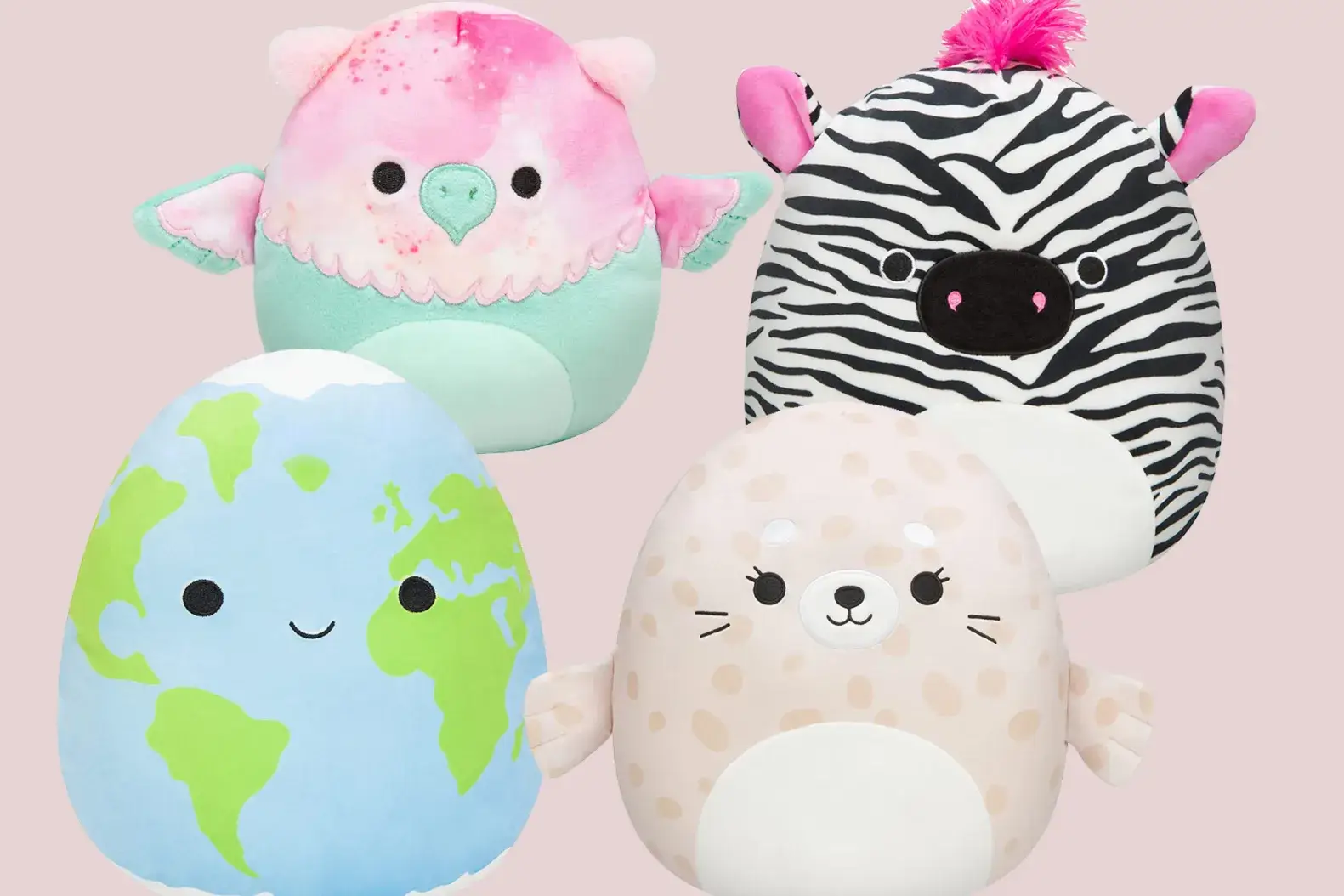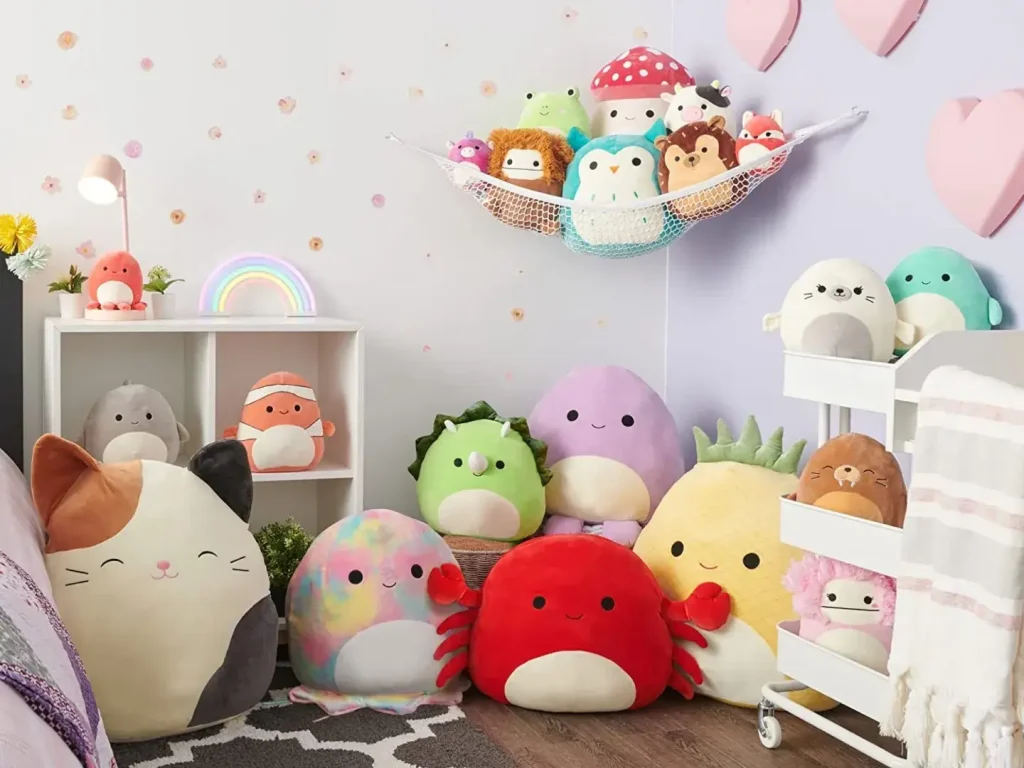The Rising Trend of Boycotting Squishmallows: Understanding the Controversy and Its Implications

In recent times, an unexpected trend has emerged – the boycotting of Squishmallows. What began as a harmless craze for these plush toys has transformed into a controversial movement, with consumers actively avoiding or even protesting against them. This article delves into the reasons behind this phenomenon, exploring the controversies surrounding Squishmallows and their broader implications.
Understanding Squishmallows:
Squishmallows, manufactured by Kellytoy, gained immense popularity for their irresistibly soft and squishy texture, adorable designs, and collectible nature. Marketed as stress-relievers and companions, they quickly became sought-after items among children and adults alike. Their success led to various collaborations, limited editions, and an active online community dedicated to collecting and trading them.
Alright, picture this: you’re strolling through the aisles of your favorite store, and suddenly, you spot them – Squishmallows. These adorable, squishy plush toys have taken the world by storm, and it’s not hard to see why. They’re like clouds you can hug, with their super soft texture and cute designs that make you go, “aww” every time. Seriously, they’re so squishy you just can’t resist giving them a squeeze!
Now, let’s talk about the Squishmallow community. It’s like a secret club, but for plush enthusiasts. From kids to adults, everyone’s jumping on the Squishmallow bandwagon. There are forums, social media groups, and even trading events dedicated to these little guys. It’s a whole world of cuteness out there, with collectors hunting down rare editions like treasure hunters on a quest.
But hold up, not everything is rainbows and sunshine in Squishmallow land. There’s been some drama brewing lately. Rumors are flying around about the way these plushies are made. Some folks say the production process isn’t exactly squeaky clean – think sweatshops and questionable labor practices. And then there’s the environmental angle. Are all those cute little critters wreaking havoc on the planet? It’s got people thinking twice about adding more Squishmallows to their collections.
And let’s not forget about the oversaturation. It seems like there’s a new Squishmallow release every other day, flooding the market with more fluff than we know what to do with. Some folks are feeling overwhelmed, like they’re drowning in a sea of squishiness. It’s enough to make you wonder, are we reaching peak Squishmallow? Or is there no such thing as too many squishy pals?
So, there you have it – the wonderful, squishy world of Squishmallows, complete with its ups and downs. Love ’em or hate ’em, you can’t deny the impact these little plushies have had on pop culture. And who knows what the future holds for our squishy friends? One thing’s for sure – they’ve certainly made their mark on the world of toys.
The Boycotting Movement:
Despite their widespread popularity, Squishmallows have recently faced backlash, leading to a boycott movement. Several factors contribute to this phenomenon:
- Ethical Concerns: One of the primary reasons behind the boycott is ethical concerns regarding Squishmallows’ production. Some consumers allege that the manufacturing process involves unethical labor practices, including low wages, poor working conditions, or exploitation of workers in developing countries. With increasing awareness of ethical consumerism, these allegations have prompted many to distance themselves from Squishmallows.
- Environmental Impact: Another significant aspect of the boycott revolves around environmental concerns. Squishmallows, like many plush toys, are made from materials that may not be environmentally friendly. Concerns about plastic pollution, non-biodegradable materials, and unsustainable manufacturing processes have led environmentally conscious consumers to boycott Squishmallows in favor of more eco-friendly alternatives.
- Oversaturation and Consumer Fatigue: The rapid proliferation of Squishmallows, coupled with aggressive marketing strategies, has led to oversaturation in the market. Some consumers have grown weary of the constant stream of new releases, limited editions, and marketing campaigns. This oversaturation has resulted in a backlash, with individuals opting to boycott Squishmallows as a form of protest against consumerism and excessive consumption culture.

Implications and Debates:
The boycotting of Squishmallows raises several important questions and debates:
- Corporate Responsibility: The controversy surrounding Squishmallows highlights the increasing demand for corporate accountability and transparency. Companies like Kellytoy face scrutiny not only for their products but also for their supply chain practices. The boycotting movement serves as a reminder to businesses that consumers are increasingly conscious of ethical considerations and expect companies to uphold certain standards.
- Balancing Consumerism and Sustainability: The boycott reflects broader conversations about the balance between consumerism and sustainability. While Squishmallows offer joy and comfort to many, their production and consumption may come at a cost to the environment and labor rights. Finding a balance between meeting consumer demand and minimizing negative impacts on society and the planet is a challenge that companies and consumers alike must address.
- The Power of Consumer Activism: The boycott of Squishmallows demonstrates the power of consumer activism in shaping corporate behavior. Social media platforms and online communities play a crucial role in mobilizing individuals and amplifying their voices. Companies ignore consumer concerns at their peril, as negative publicity and boycotts can significantly impact their reputation and bottom line.
Conclusion:
The boycotting of Squishmallows reflects broader societal trends and concerns regarding ethics, the environment, and consumerism. While the controversy may seem trivial on the surface, it underscores the complexities of modern consumption patterns and the responsibilities of companies in meeting evolving consumer expectations. Whether the boycott will prompt meaningful change in the way Squishmallows and similar products are produced and marketed remains to be seen, but it serves as a potent reminder of the power of consumer activism in driving social and economic change.
FAQs
Why are people boycotting Squishmallows?
People are boycotting Squishmallows for various reasons, including ethical concerns regarding labor practices in the manufacturing process, environmental worries about the materials used, and dissatisfaction with oversaturation and consumerism culture.
Are Squishmallows manufactured using unethical labor practices?
There have been allegations that Squishmallows may be manufactured using unethical labor practices, such as low wages, poor working conditions, or exploitation of workers in developing countries. These allegations have prompted some consumers to boycott Squishmallows in protest.
What are the environmental concerns associated with Squishmallows?
Squishmallows, like many plush toys, are made from materials that may not be environmentally friendly. Concerns include plastic pollution, non-biodegradable materials, and unsustainable manufacturing processes. Some environmentally conscious consumers choose to boycott Squishmallows in favor of more eco-friendly alternatives.
Is boycotting Squishmallows effective in promoting change?
Boycotting Squishmallows can raise awareness about ethical and environmental issues in the manufacturing process and may prompt companies like Kellytoy to reassess their practices. However, the effectiveness of the boycott in promoting change ultimately depends on various factors, including the extent of consumer activism and the response of the company.
Can Squishmallows be replaced with more ethical alternatives?
Yes, there are alternatives to Squishmallows that may be considered more ethical and environmentally friendly. Some consumers opt for handmade plush toys from local artisans, toys made from sustainable materials, or products from companies with transparent and ethical supply chain practices.
How can consumers support ethical production practices in the toy industry?
Consumers can support ethical production practices in the toy industry by researching companies’ supply chain practices, choosing products from companies with transparent and ethical policies, advocating for fair labor standards and environmental sustainability, and participating in boycotts or campaigns to raise awareness about ethical issues.
Are there any initiatives or movements advocating for ethical toy production?
Yes, there are various initiatives and movements advocating for ethical toy production, including organizations focused on labor rights, environmental sustainability, and fair trade practices. Consumers can support these initiatives by staying informed, participating in campaigns, and choosing products from companies aligned with their values.

